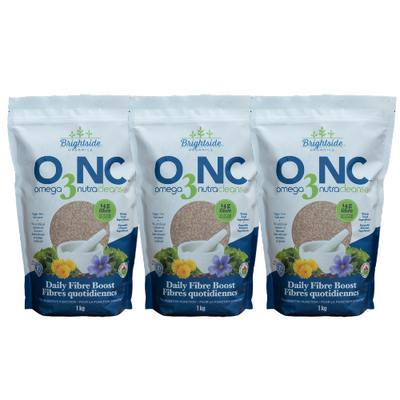Psyllium Husk: The Superfood No One Is Talking About
You’ve probably heard of the term “Superfood.” It’s a buzzword common in the diet and health industries. But despite their name, superfoods aren’t magic. They don’t wear capes, and they can’t fly. But they are packed with the nutrients your body needs to stay healthy.
Some common examples of superfoods include berries, leafy greens, legumes, salmon, and certain nuts and seeds. But there’s another superfood out there that no one seems to be talking about (but they probably should!) And that’s psyllium husk.
If you’ve never heard of psyllium husk, we don’t blame you. It isn’t a common item on the grocery list, and it doesn’t find it’s way into most dinner conversations. But we think it has, at least, earned its place on the list of superfoods for its amazing medicinal properties.
What is Psyllium Husk?
Psyllium husks come from the seeds of an herb called Plantago ovata. Grown in the rolling fields of India, psyllium husk is a fibre-dense plant best known primarily for its impressive ability to alleviate digestive problems. (It’s also one of the 5 simple ingredients in Omega 3 Nutracleanse!)
Psyllium husk isn’t digested. Instead, it thickens and forms a gel in your stomach, which traps toxins, sugars, and carbohydrates as it moves through the body. Psyllium is made up of both soluble and insoluble fibre, though the majority is soluble.
This superfood really lives up to its name, providing a number of health benefits throughout the body. Here are just a few of the reasons you should add more psyllium to your diet.
5 Benefits of Eating More Psyllium Husk
- Improve digestion: A good source of soluble fibre, psyllium husk draws water into your intestines, helping regulate stool and move waste through the body, encouraging more effective digestion.
- Regulate blood sugar and control type 2 diabetes: The soluble fibre in psyllium husk helps slow down digestion which controls the rate at which sugar is absorbed into the blood. Psyllium husk can also help control blood sugar levels if you have Diabetes.
- Assist in weight loss: Adding more soluble fibre to your diet - like the kind in psyllium husk - can help delay gastric emptying, contributing to a sense of fullness (also known as satiety), and may reduce total calorie intake.
- Lower cholesterol and reduce the chance of heart disease: Too much cholesterol in your blood can build up in your arteries, increasing your risk of serious heart disease. Studies have found that taking psyllium husk daily can help reduce LPL Cholesterol (i.e. the bad cholesterol) and, therefore, help lower your risk for heart disease.
- Treat inflammatory bowel disease: For many people, taking more psyllium husk can be a natural remedy for inflammatory bowel disease (IBD). When fermented in the bowel, psyllium produces short chain fatty acids which can help reduce inflammation and strengthen the intestinal wall. Be sure to consult with your doctor before starting psyllium husk if you have IBD, as eating too much fibre during a relapse can worsen symptoms.
How to Eat More Psyllium Husk
Psyllium husk comes in multiple supplement forms such as capsules, bars, and (like O3NC) a versatile powder you can easily add to many of your favourite healthy recipes.
Here are some of our best recipes for adding psyllium husk to boost your intake.
- Omega 3 Nutracleanse Smoothie Bowl
- Oh-Mega Oatmeal Pancakes
- Pesto Turkey Meatballs
- Gluten-Free Low Carb Pizza Crust
Learn more about the health benefits of O3NC.
Important to keep in mind: Psyllium has the ability to decrease the absorption of some medications. So, consult with your doctor before starting, and make sure to take psyllium husk 2-4 hours before or after you eat or take medications. Additionally, it’s important to increase your water intake when consuming psyllium. A powerhouse fibre, psyllium draws tons of water into your bowel. Not drinking enough water while taking psyllium can lead to dehydration and feeling bloated.


